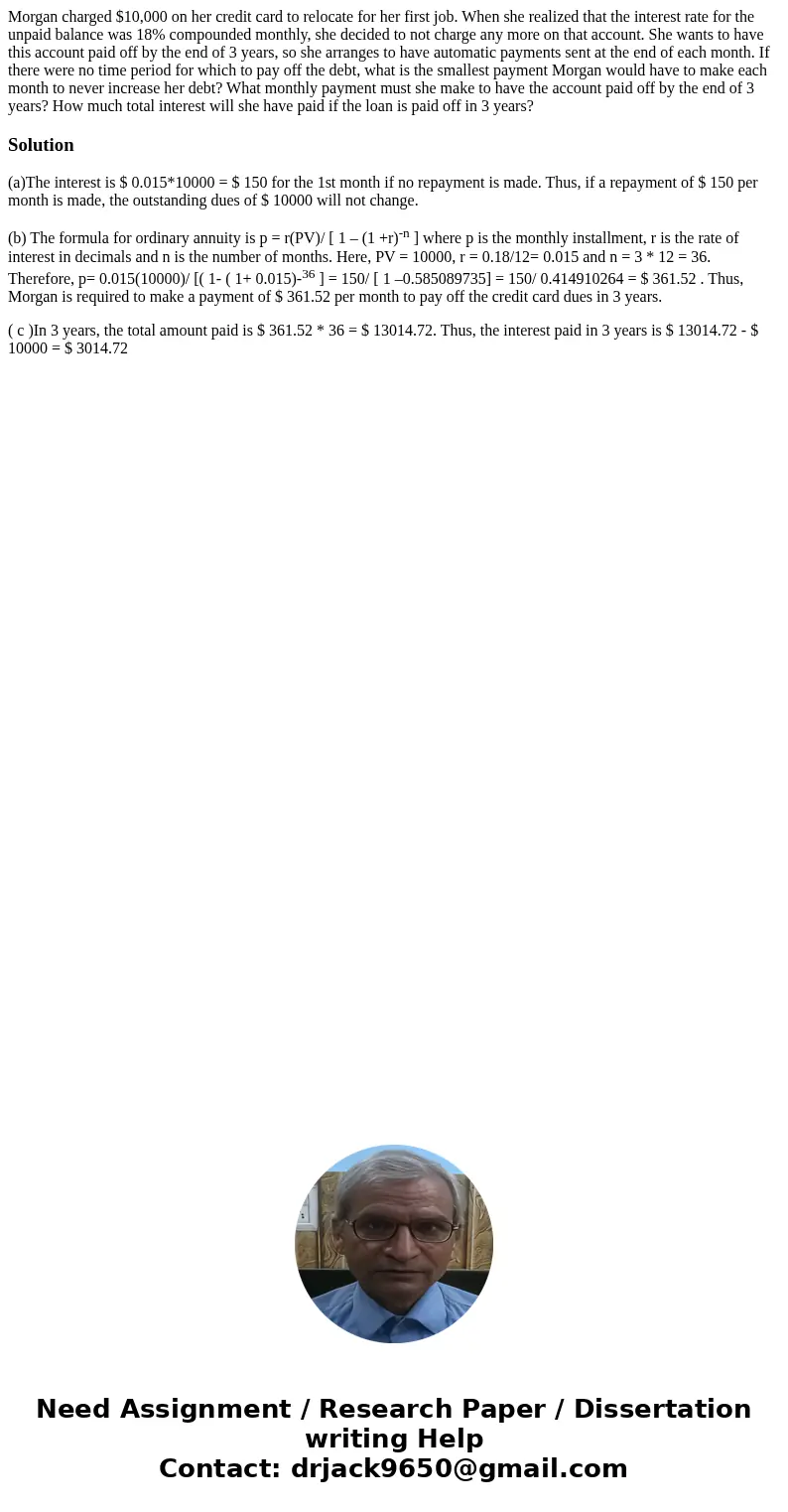Morgan charged 10000 on her credit card to relocate for her
Solution
(a)The interest is $ 0.015*10000 = $ 150 for the 1st month if no repayment is made. Thus, if a repayment of $ 150 per month is made, the outstanding dues of $ 10000 will not change.
(b) The formula for ordinary annuity is p = r(PV)/ [ 1 – (1 +r)-n ] where p is the monthly installment, r is the rate of interest in decimals and n is the number of months. Here, PV = 10000, r = 0.18/12= 0.015 and n = 3 * 12 = 36. Therefore, p= 0.015(10000)/ [( 1- ( 1+ 0.015)-36 ] = 150/ [ 1 –0.585089735] = 150/ 0.414910264 = $ 361.52 . Thus, Morgan is required to make a payment of $ 361.52 per month to pay off the credit card dues in 3 years.
( c )In 3 years, the total amount paid is $ 361.52 * 36 = $ 13014.72. Thus, the interest paid in 3 years is $ 13014.72 - $ 10000 = $ 3014.72

 Homework Sourse
Homework Sourse